Every poker player regularly makes mistakes in standard situations. It is impossible to play perfectly, everyone has leaks, even the greatest ones make mistakes.
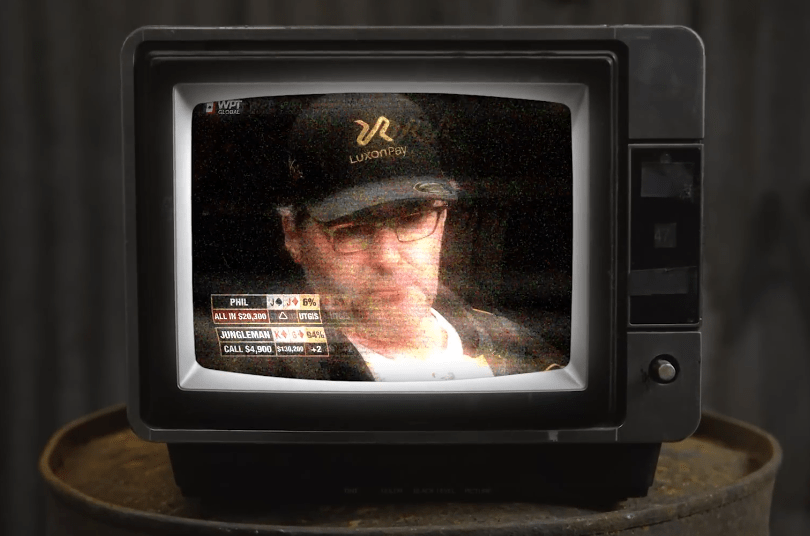
However, these days, making some mistakes, in my opinion, is simply indecent! All the necessary information is on the Internet: on many platforms, you can find free preflop ranges, and on YouTube channels, professionals teach the most complex concepts in 20 minutes. You no longer have excuses for wrong decisions in basic situations. However, you are almost certainly wrong from time to time.
In this video, I will talk about the three most infamous mistakes in No-Limit Hold'em.
Overfolding in the Big Blind
This problem has been much more common in the past. When I started breaking down the base in 2017, almost everyone was doing extra folds in the big blind.

Things aren't that bad now, but people still have room to grow. This is especially true when the opponent makes a min-raise. Here is an example of a defensive range against a hijack min-raise:
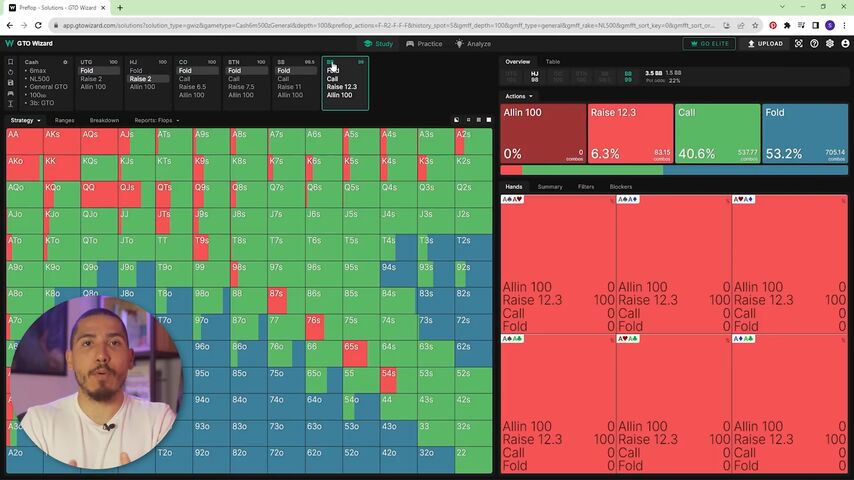
People tend to fold noticeably more often than the solver advises, and this is a big problem.
According to the rules of poker, we are forced to put money in the big blind blindly, with any cards. This happens every round, so in order to give yourself a chance to win, you have to understand very well what to do in the big blind and defend it like your life depends on it. Alas, most people still haven't learned how to call properly in this position. Shame on you, comrades! You don't even have to pay for a preflop range now! They are provided, for example, by the GTO Wizard. The only thing that prevents you from mastering the correct preflop is laziness and inability to work.
Well, really, what are you? The absolute minimum is required of you – open the charts, learn them by heart, and use them during the game! The preflop action is very important because you make preflop decisions in every hand. Repeated mistakes at this stage will not allow you to show a high win rate.
All the necessary tools are in your hands. Preflop work isn't too hard and won't take you too long. Use the GTO Wizard or any other modern platform, set aside a few minutes a day for pre-flop practice, and practice making standard decisions.
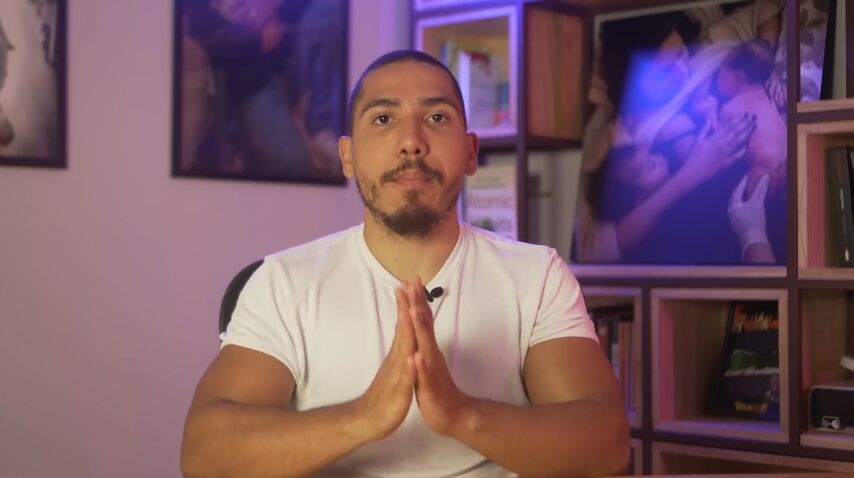
If you have leaks preflop, these activities should be your top priority. And my database research shows that you almost certainly have leaks. Therefore, do not be lazy and fight with them every day. Make this a permanent part of your game development and soon you will finally stop overfolding in the big blind.
Flop CBet Overfolds
This is the second most shameful leak in the strategy of the regulars, and it repeats the previous one in many ways. Refining your reaction to a flop c-bet is extremely important. Of all positions, you play the big blind most often, and of all the hands in the big blind, the most common scenario is your check and your opponent's c-bet on the flop. Failure to properly respond to aggression will cost you dearly, because even small mistakes accumulate very quickly. We need to maximize the EV of every hand we get in the big blind, otherwise we'll be gifting money to our opponents.
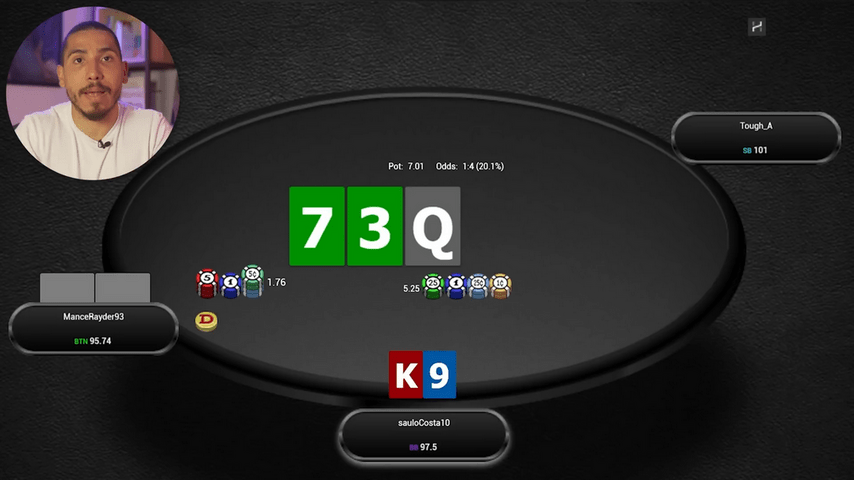
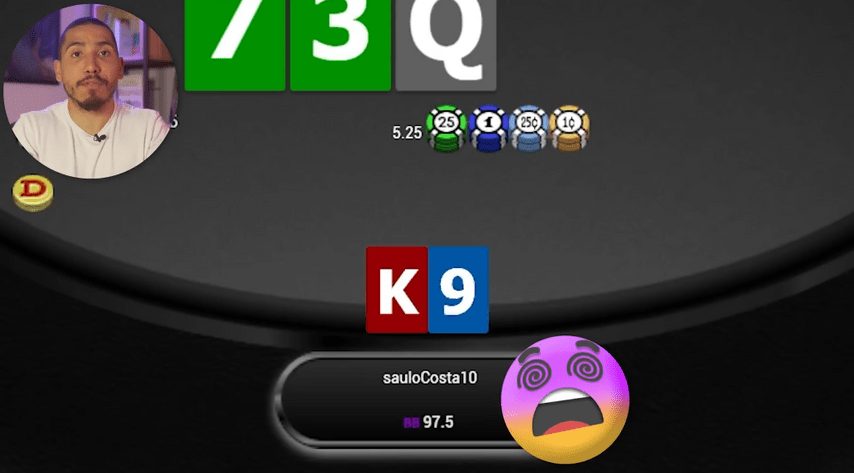
This is also an unforgivable leak, because in 2023 we have every opportunity to eliminate it. In programs, you can train on any texture, against any position, and any sizing that causes you questions. The only thing standing between you and perfect flop play is the time spent on a very simple and affordable practice.
Practice in the simulators until you develop an intuitive understanding of the boundaries of protection on different textures. In my opinion, this is generally the simplest thing that can be in poker! Although... Yes, learning preflop is perhaps even easier – but we have already discussed it.
4-5 years ago the field played much worse against c-bets than it does now, but the overfold problem is still there. It's especially painful to watch people fold from the big blind to the small blind.
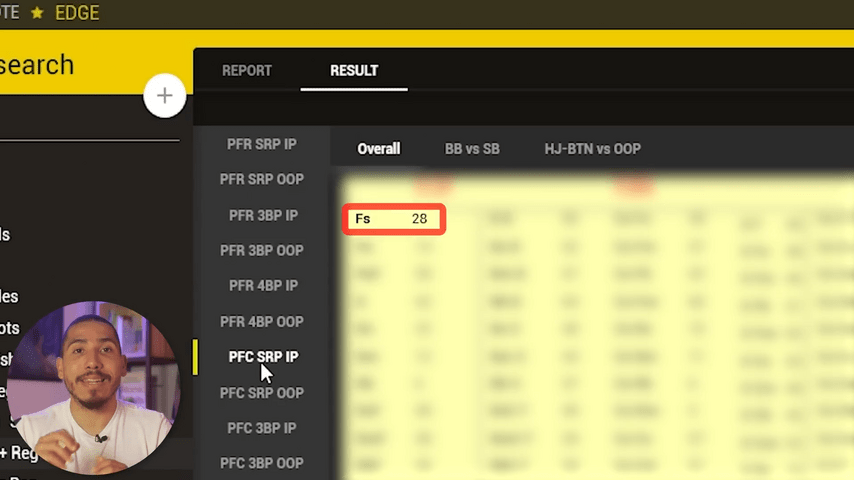
In a situation where the solver folds 19% of hands, high-stakes regulars continue to fold 28% – one and a half times more! With these folds, they openly give money to their opponents. Moreover, as the analysis of the base shows, they c-bet much more often than the optimal one (often without knowing it themselves), and it turns out that their hyperaggression naturally pays off. Your desire for comfort is openly exploited.
Isn't it embarrassing to react so passively to a small bet from a very wide range while in position? All you have to do is float that little c-bet and play the turn and river. You can't really overfold all the time! Someday it's worth learning the edge of defense and start fighting for pots.
I suggest that you include c-bet defense work in your daily theory classes. Practice these situations until you're blue in the face! You can do this even instead of studying hands. I don't understand why everyone is so obsessed with this. I'll tell you a terrible thing: analysis of hands is one of the most inefficient methods of working on the game! There are plenty of ways to put your time to better use.
I hear your objections: wow, take it easy! How is this an inefficient method? After all, everyone around is doing that, they are dismantling the hand!
I have something to say about this, but the topic is big and deserves a separate video, which I will definitely record. Just know that the analysis of hands in the way that most players understand it is really not very useful. If you like to do this – please, but this should not be at the expense of exercises in the simulators. Athletes are constantly engaged in monotonous workouts, repeating the same elements over and over again, and poker players should take a cue from them. Practice makes the difference! Software at hand – it all depends on you.
Rejection of the randomizer
Yes, I insist: the reluctance to use the randomizer is also a leak that you should be ashamed of. It talks about the shortcomings of your approach to the game.
Many low and medium-stakes regulars do not use randomizer and play binary, making the same decisions with the same hands, that is, they refuse to use a mixed strategy. You may be surprised, but this is one of the origins of the problems we talked about in the first two paragraphs! Overfolds in the big blind preflop and flop come from 100% folding marginal hands. Some of them cannot be folded at all, with others the solver uses a mixed strategy, randomly mixing calls (or even raises) and folds.
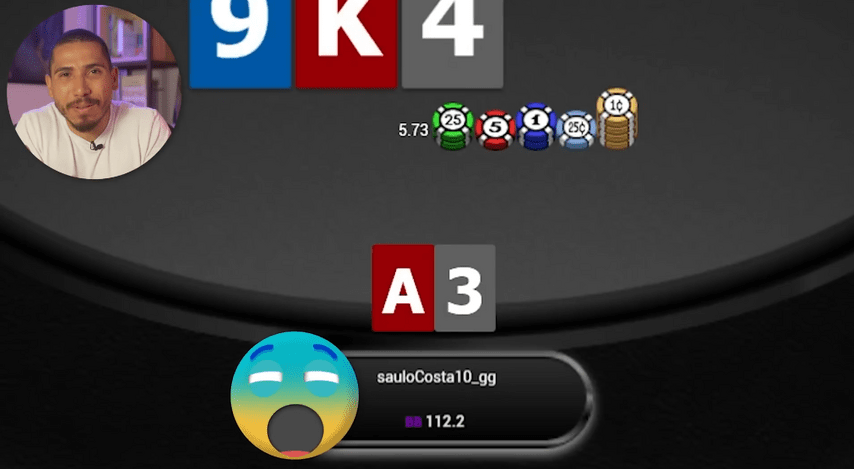
The regular feels that the EV of these hands is close to zero, and chooses the easiest and most comfortable way – to fold the cards. His intuition is not exactly deceiving him, but optimal poker requires that we keep fighting from time to time, otherwise, we will become vulnerable to primitive aggression.
Many players and coaches argue that randomization is not a necessary condition for a profitable game at low and medium stakes, and they are right. In principle, you can reach high stakes without a randomizer, but this does not mean that you do not need to use it. After all, are your decisions at the tables influenced by the absence of a huge screen, a top-end mouse, or a very comfortable $3,000 chair? You can ride in plus without them – but it is much more pleasant to do it with them.
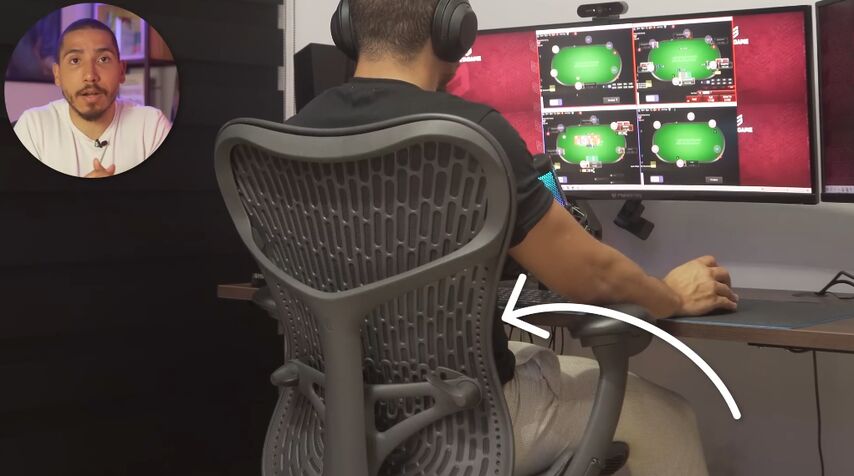
Randomizer is also a useful tool. The most obvious plus is that it makes our game more balanced and less vulnerable. A less obvious, but very significant plus is that it unloads our brain, removing some of the responsibility for making decisions. Instead of straining to find the perfect choice in a situation where the solver performs a random action, we can, without wasting extra effort and nerves, press the randomizer button and do what it says. In the end, these are really close situations, and there may not be an optimal solution for the opponent. And so you will be less tired and will be able to maintain a good level of concentration during sessions longer. It's easier that way, really! Remember: just because you can do something without it, it does not mean that we must do without it.
[ There is also a free online randomizer on GipsyTeam – ed.]
However, do not abuse the randomizer so as not to create new problems for yourself. Some of my students get very obsessed with GTO and start playing too passively. This is a common problem for all theorists. So I don't want you to start randomizing, for example, expensive river decisions against recreational players after this video. Turn on the randomizer only when it makes sense and makes sense. I think you will understand. Good luck!
















